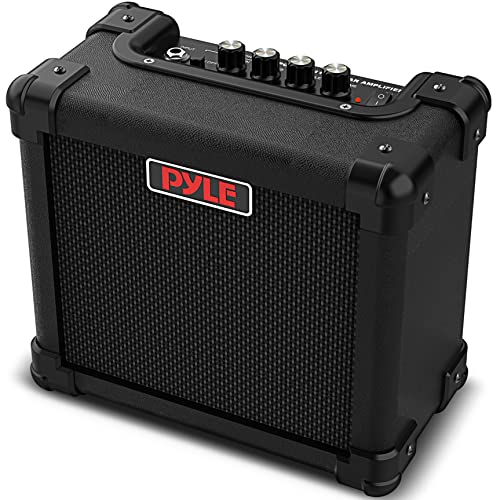metalhd77 said:
Very good points and explanation yellowjacket!!
That makes a lot of sense! I definitely need to work on my fretting and technique. Probably should be practicing on an acoustic. If I miss any notes, that is gonna be the most unforgiving instrument to play, so theoretically I will get better?
I always thought I had good dexterity, but you're right about the guitar/amp being forgiving when playing really fast. When I play slow, I think that is when my notes are dying. Need to probably work on my fretting and pick attack to get that "fluid" motion.
Acoustic guitar and Electric guitar are different instruments. Best thing to do to improve at electric guitar is to practice on an electric guitar, but using a sensitive and quality amp. I personally like to organize my practice time. I do exercises like variations of that chromatic ascending etude every guitarist knows, but using string crossings and skips as well.
I then work on scales, practicing inversions up and down the fretboard. I also have various sequences I like to use. The important thing is to get CONNECTED with the instrument and work up your technique before launching into playing music. My general suggestion about this is always to practice these warmup exercises clean and with a metronome. As a rule, I start out painfully slowly and then increase speed until it is uncomfortably fast and then back down the tempo slightly and play perfectly. The key here is ACCURACY. Small and accurate motions are best.
Then after this you can put in your favourite record and work on jamming with it. For lead playing, think about building a 'dictionary' of licks that you can put together while soloing. The licks are words and you are trying to tell a story.
For rhythm, learn music. Learn riffs and rhythm parts that sound cool to you and play with a metronome, using different speeds. This will help A LOT!
Of course I haven't been playing guitar lately but when I have time, organized practice goes a long way to helping me develop chops with a minimal time investment. (compared to many other players who would rather just 'play' 3 hours a day)
Just remember, ALWAYS START PAINFULLY SLOWLY. This Haydn C Major Concerto on Cello is a painful reminder of this truth. The third movement is a PIG!
screamingdaisy said:
I'm going to disagree with Yellowjacket in that I don't feel that gain is that imporant for lead, but we've compared notes before and we're not going for the same thing tonally.
Yes, I like extra gain saturation for searing solos. For my purposes, I often find that I like either MORE or LESS gain for soloing than what I want for my Rhythm channel. The invention of the volume knob is a WONDERFUL thing!
When I try to use my rhythm settings for lead, two things happen. 1) I am always THWACKING my guitar to try to get more gain out of it. This slows down my picking hand immensely.
2) My playing ends up sounding very similar to a punk rock sort of tone. Think Brian Baker or El Hefe.
If I want #2, then I simply use my rhythm settings! Typically though, the extra gain gives amazing sustain and it just scorches which is simply something I want sometime.
I should add that I used to think that the Recto had a mediocre lead tone. It wasn't until recently that I suddenly 'got it', and now that I've got it with the Recto I suddenly have a good lead tone through any amp. This was my own personal 'tone starts with the fingers' revelation.
Yes. While classical players bemoan a crappy instrument, they generally know that the magic is in the PLAYER. It is just so obvious when you try a $1,000,000 strad and you just don't sound like Rostropovich on it. Also consider that Rostropovich will still sound like Rostropovich on my student cello. (Probably the equivalent of a good Epiphone Les Paul with Gibson pickups. Costs over $4000 new. Go figure)
I think this overblown obsession with gear and tone is exclusive to guitarists, partially because gear is SO inexpensive compared to what the symphony guys need to fork out. ($7,000 vs $30,000 - $50,000 or up) The other problem is that people just are simply unaware of their own part in the signal chain. It was SO obvious to me this summer because I heard several different good players play my rig. What stunned me was how each player sounded so VERY different with my guitar, my amp, and my settings.
When I play, it sounds thick, chunky, beefy and phat. I have a very aggressive and percussive style. The leads scream. When the GNR guy played, the amp sounded much more classic rock almost like a marshall. It was INCREDIBLE. The acoustic guitar sounded like light rock and my metal friend sounded like, well, METAL!
Touch sensitivity on a tube amp is INCREDIBLE. It is seriously amazing the number of tones one can coax out of a 2 channel amp with one guitar!




















